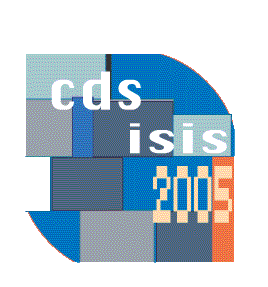II World Congress of CDS/ISIS Users
Date: September 20th-23rd 2005
Activities > IsisMarc - a missing solution
IsisMarc - a missing solution
Participants:
-
Brazil
:
The complexity and difficulties in the implementation of the MARC format have been pointed as barriers for the libraries to adhere to this standard. It shows that without standards will be limitations in communication and interchange of bibliographic data, remembering that the Internet, which revolutionized the communication in the globalized world, would not be possible, if it did not adopt rigid standards, like HTML, DHTML, XML, etc. It raises the question of the conflict that can be observed between defenders of MARC and CDS/ISIS users and that this conflict does not have reason to exist today, due UNESCO puts IsisMarc available for date entry. It tells that, even there are passed more than twenty years since the introduction of the MARC format in Brazi
l, it still finds resistance. It
stands out that
the Bibliodata Union Catalogue is the biggest MARC 21 database in Brazil and is a MARC records supplier for many libraries. It describes the main benefits and advantages that the adhesion to MARC 21 can bring to the library. It emphasizes the importance of the bibliographic database, then it will be the only permanent component of a library automation system and, therefore, it should be constructed based on a standard like MARC 21, detaching that the adoptio
n of standards prevents re-work in case of migration to another
automation system. It highlight
s that the IsisMarc provides an alternative for MARC 21 to the CDS/ISIS users and that it configures a solution that makes the MARC 21 format accessible to any library or information center, independent of its size and its resources.
Documents:

